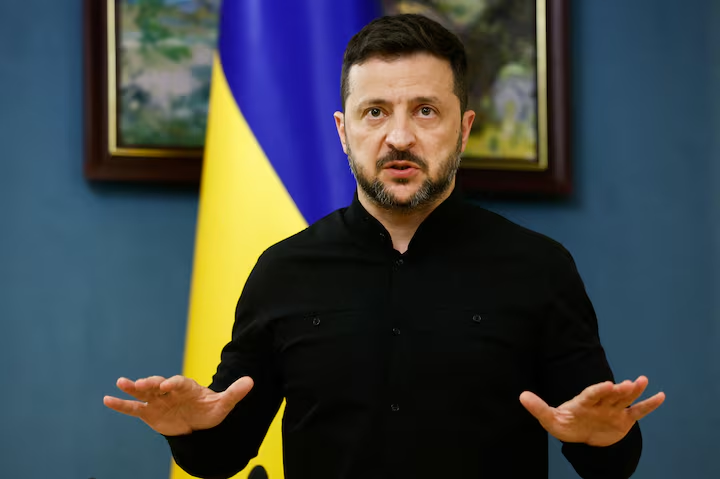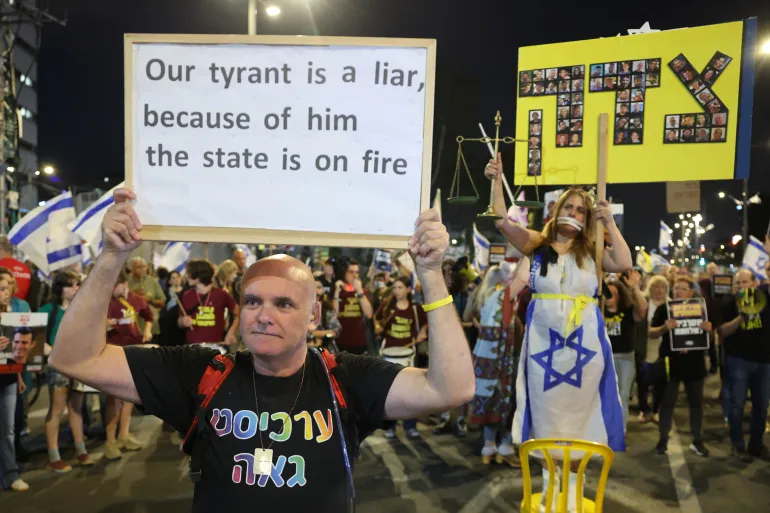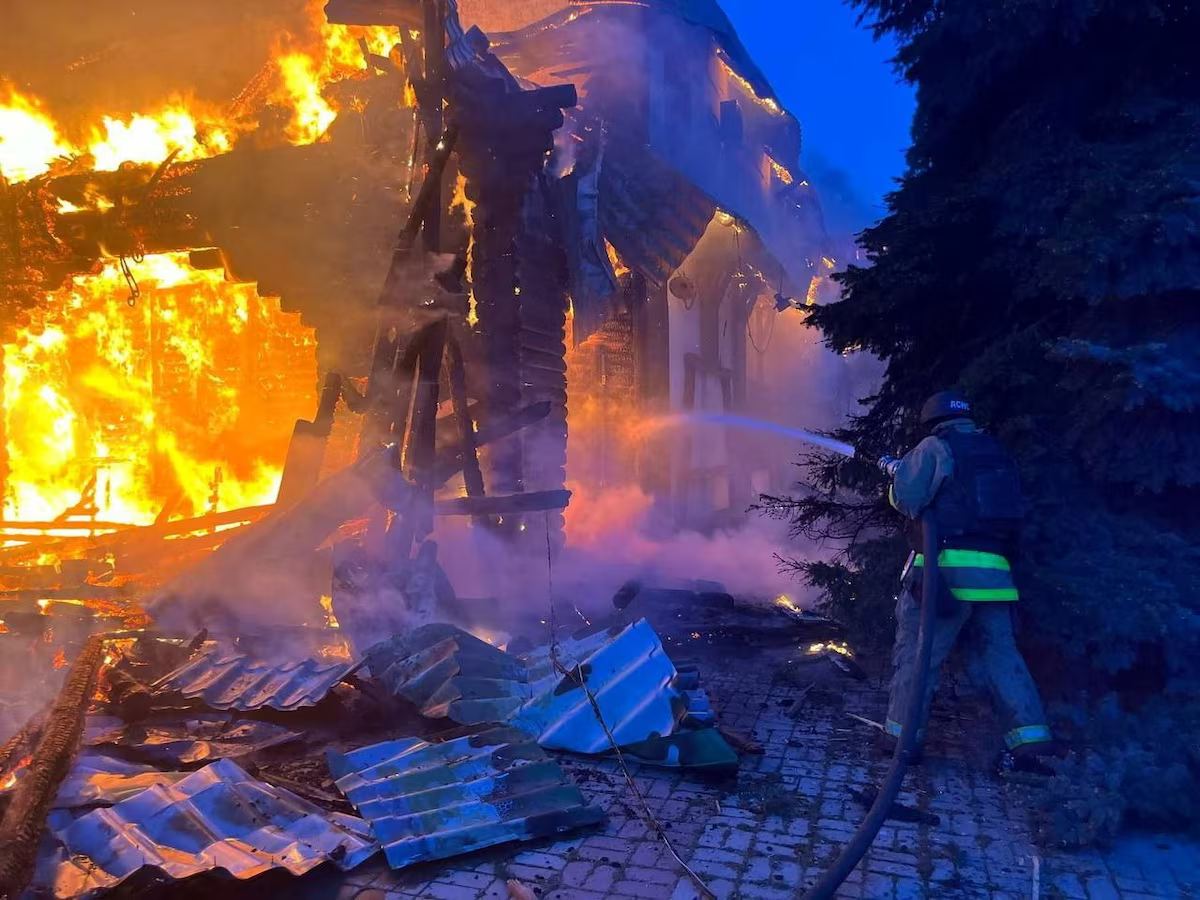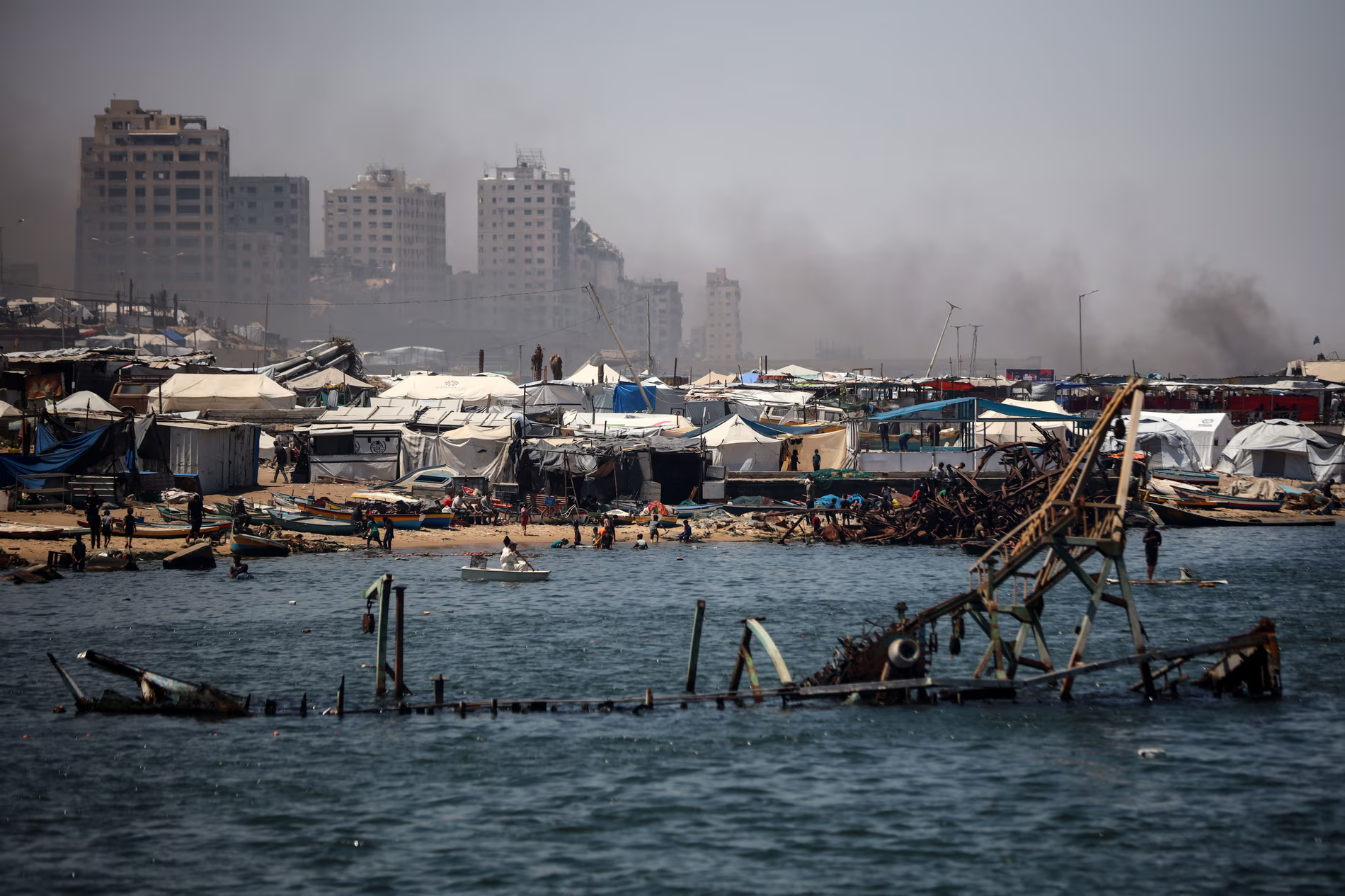Ukrainian President Volodymyr Zelenskyy announced on Monday, May 19, 2025, that a high-level international summit involving Ukraine, Russia, the United States, the European Union, and the United Kingdom is being planned as part of renewed diplomatic efforts to end the war that has gripped Eastern Europe for over three years.
The talks are currently in the preparation stage, and no formal date or venue has been confirmed. However, Zelenskyy emphasized that dialogue is intensifying behind the scenes, driven by mounting international pressure and a rapidly deteriorating humanitarian crisis in Ukraine.
“A high-level meeting between Ukraine, Russia, the U.S., EU, and the UK is being prepared,” Zelenskyy said during a televised briefing. “The world wants peace, and we are ready to sit down and talk — but not at the cost of our sovereignty.”
The announcement follows days of renewed violence across Ukraine, including Russian drone and missile attacks on Kyiv, Kharkiv, and Dnipro, which killed dozens of civilians and left critical infrastructure damaged. Despite ongoing bloodshed, recent signals from Moscow, Washington, and European capitals suggest diplomatic channels are reopening after months of stalemate.
The proposed summit marks the most significant multilateral effort to resolve the conflict since early 2024. Previous ceasefire talks, including those hosted in Istanbul and Doha, failed to yield lasting results, largely due to disagreement over territorial concessions, the status of Crimea and the Donbas region, and the demilitarization of contested zone.
Zelenskyy reiterated that any negotiation must be based on his government’s core conditions: a complete Russian withdrawal from Ukrainian territory, accountability for war crimes, and legally binding security guarantees for Ukraine’s future.
Russia has not officially confirmed participation in the summit but has indicated “interest in constructive dialogue” through diplomatic back channels. Kremlin officials have also responded positively to recent overtures from U.S. President Donald Trump, who is planning a direct phone call with Russian President Vladimir Putin in the coming days.
The United States and European Union have both expressed support for the proposed high-level talks, viewing them as a potential turning point if handled with realism and mutual compromise. A spokesperson for the EU foreign policy chief Josep Borrell said the bloc is “ready to support any serious peace initiative that respects international law and Ukraine’s sovereignty.”
British Foreign Secretary David Lammy echoed that sentiment, stating that the UK remains committed to helping Ukraine achieve “a just and durable peace,” but cautioned that negotiations must not legitimize territorial aggression.
“We will support Ukraine at the negotiating table as firmly as we have on the battlefield,” Lammy told reporters in London.
The summit also comes at a time of shifting political dynamics. President Trump has expressed eagerness to act as a mediator, promising to “end the war quickly”, though critics warn that any deal struck without full input from Kyiv risks undermining Ukraine’s agency.
Humanitarian groups have welcomed the possibility of negotiations but warn that expectations should be measured. According to the UN, over 12 million Ukrainians have been displaced, and thousands remain without access to food, electricity, or shelter. The war has killed an estimated 400,000 people on both sides and left entire cities in ruins.
Meanwhile, skepticism remains among many Ukrainians, especially those in frontline regions who have borne the brunt of Russian shelling. Some fear that negotiations could pressure Ukraine into unacceptable compromises, while others see the summit as a chance to finally bring the war to an end.
As groundwork for the summit continues, Zelenskyy reaffirmed Ukraine’s position:
“We are ready to talk. But peace must be built on truth, not fear — and on justice, not appeasement.”
With the world watching closely, the success or failure of this proposed diplomatic gathering could shape the future of European security, global alliances, and Ukraine’s sovereignty for years to come.
Source; Reuters



